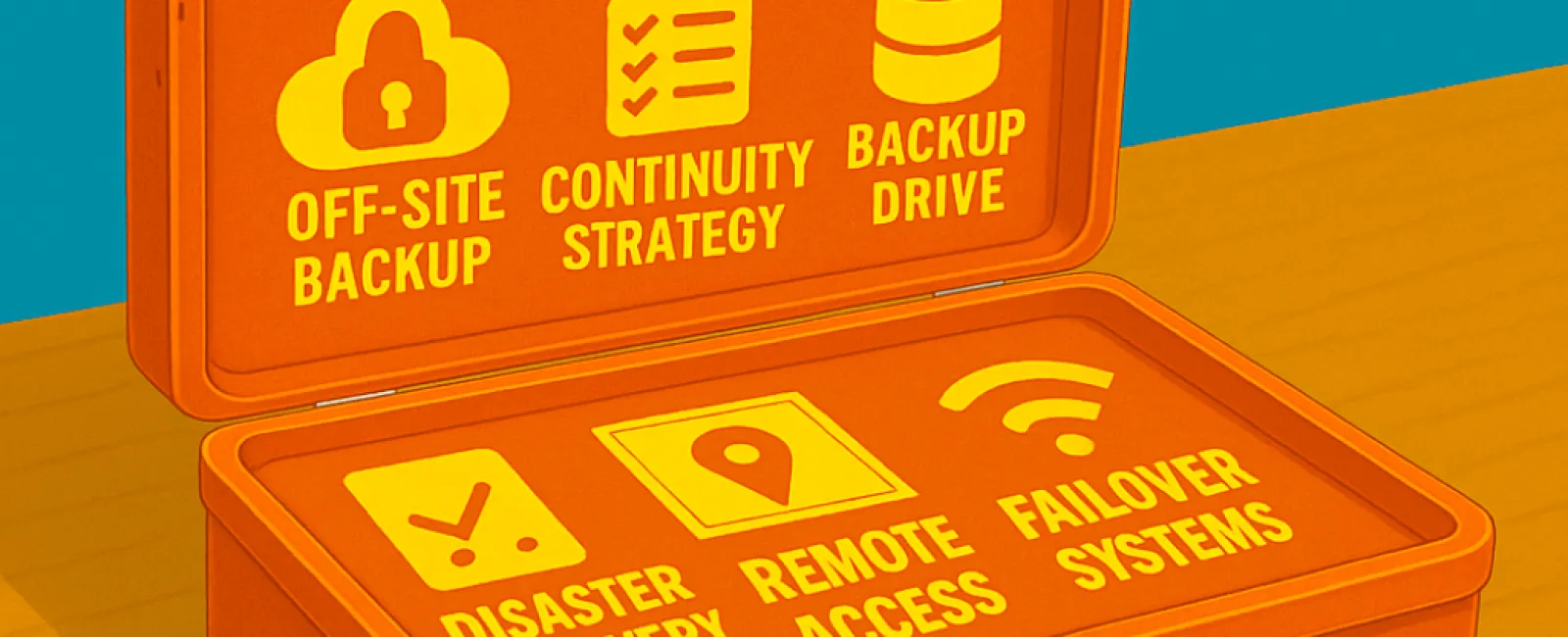July 28, 2025
Unexpected power outages, cyberattacks, hardware breakdowns, and natural disasters often strike without warning, placing small businesses at serious risk. Many believe that simply having backups suffices, but restoring files alone isn't enough to keep your business running smoothly. If your systems are inaccessible, remote work isn't supported, and communication with your team and clients falters, even brief interruptions can escalate into prolonged setbacks. A trusted IT partner will equip you not just with backups, but a comprehensive strategy to maintain your business operations under any circumstance.
Backups Alone Can't Sustain Your Business—You Need Continuity
Backups are crucial, but they only address part of the challenge. What your business truly needs is a business continuity plan: a forward-thinking approach that guarantees uninterrupted operations during and after any disruption.
When systems fail, files become unavailable, or your physical location is compromised, relying on local backup copies won't suffice. Without a rapid recovery plan, your business faces significant risks including lost revenue, damaged reputation, and potential legal issues.
Understanding the Critical Difference Between Backups and Business Continuity
Many businesses misunderstand this key distinction:
• Backups secure your data for recovery.
• Continuity ensures your business stays functional no matter what.
A robust continuity plan clarifies essential questions such as:
• How quickly can we resume normal operations?
• Where can our team work if the office is unusable?
• Which systems are absolutely mission-critical?
• Who manages and activates the recovery protocol?
Plus, it includes vital elements like:
• Encrypted, off-site, immutable backups
• Clearly defined recovery time and point objectives (RTO/RPO)
• Preparedness for remote work at any moment
• Redundant systems and automatic failover mechanisms
• Routine disaster simulations and testing
If your IT provider cannot confidently guide you through these critical points, you're not protected—you're just fortunate so far.
Could This Really Happen To Me?
These scenarios are not just hypothetical—they're happening right now to real businesses:
• Florida hurricanes forced hundreds of businesses to shut down, leaving those without cloud access completely immobilized.
• North Carolina floods wiped out on-site servers, erasing months of critical records.
• California wildfires destroyed entire office buildings, many lacking any off-site recovery plan.
• Numerous small businesses hit by ransomware attacks discovered that their backups were either corrupted or never verified.
Disasters don't target only large enterprises—they impact businesses like yours every day.
You Should Be Asking These Vital Questions Now
If disaster struck tomorrow, could your business continue operating?
Pose these questions to your IT provider:
• In the event of a ransomware attack, how fast can we bounce back?
• Are our backups regularly tested, and what systems are covered?
• What is the recovery plan if a flood or fire impacts our office?
• Does our continuity plan comply with industry regulations?
• Can our team continue to serve clients effectively if working remotely?
If you're not absolutely sure of these answers, your business could be exposed to unnecessary risk.
Disasters Are Inevitable. Downtime Doesn't Have To Be.
You can't prevent storms, outages, or cyberattacks, but you can control how quickly and effectively you respond.
An excellent IT provider helps you recover quickly.
A top-tier provider ensures your business never misses a beat.
Curious about where your business stands?
Click Here or call us at 801-997-8000 to schedule a FREE 10-Minute Discovery Call, and secure your business against downtime before disaster strikes.





